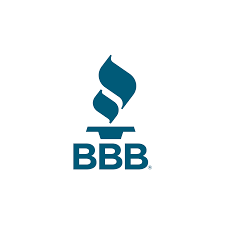
Moving during a pandemic comes with plenty to worry about. It can help to take care of some details online. But these conditions have helped spur the troubling rise of an online scam aimed at new movers.
Misleading or fraudulent websites resembling official U.S. Postal Service (USPS) change of address pages have proliferated via online advertisements in channels such as Google Ads. Users of these sites report being charged with significant, undisclosed fees for what should be a $1.05 government service. The Better Business Bureau Serving Metropolitan New York advises careful attention when searching for postal address change assistance online, to be sure consumers are able to find the real USPS website service.
Throughout 2020, reports poured into BBB Scam TrackerSM about these highly convincing USPS look-alike websites. Consumers report that they searched for a change of address form, clicked on any number of Google Ads appearing first in the results, and saw a USPS-style header and a form—nothing immediately suspicious.
“Scammers and shady operators often use the U.S. Postal Service name and similar brand styles to fool stressed consumers, who may not think twice before inputting their credit card number,” said Claire Rosenzweig, President & CEO of BBB Serving Metropolitan New York. “Being aware of this risk and knowing how to spot suspicious change of address sites will help consumers protect themselves.”
“In the craziness of moving, I thought I was using the USPS website,” one victim reported. “Since I trust the USPS, I didn't think anything was different by giving my card information.”
What happens next is described in more than 100 reports to BBB: shady URLs, surprise charges, and a still-unchanged mailing address reveal these sites to be online businesses using deceptive tactics - or outright scams.
Data from Scam TrackerSM shows a particularly alarming surge in change-of-address scam losses in recent months. Out of 151 total reports in 2020, 56—more than one-third—were submitted from November to the beginning of the new year. And as the expiration dates of COVID-19 eviction moratoriums and waves of mass displacement loom, more and more people may be vulnerable to a sneaky tactic that targets people moving under stress.
Most people who reported this scam to BBB alleged losing $60 to $80 in a charge to their debit or credit cards, thinking they had only agreed to the USPS’s official $1.05 charge for filing online. A few unlucky consumers didn’t notice the first suspicious charge going through and learned later that they’d been inadvertently signed up for a recurring “service” charge, sometimes losing hundreds of dollars.
Problem websites can masquerade under a variety of ever-changing URLs and business names. Users reported links labeled “change-of-address-online,” “us-change-of-address,” “changemyaddress,” “postmovechanges,” “mymovechanges,” “address_change,” “forwardmypost,” and similar variations. The only official USPS page for a change-of-address form submission can be found at usps.com itself: https://moversguide.usps.com. In addition to taking significant amounts of your money, the shifting cast of sites using decoy URLs are likely to steal your information and unlikely to file your change of address.
With COVID-19 keeping people from in-person errands, online scammers have found an opportunity to pose online as legitimate services and take advantage of extraordinarily stressful times. BBB Serving Metropolitan New York recommends the following to avoid falling for this scam:
- Double-check URLs before entering personal information. Logos and Google ads aren’t enough to confirm you’re on a safe site. The only legitimate USPS websites have “usps.com” in the URL. If you don’t see it, don’t enter your info.
- Keep a close eye on your card and account statements. Some of these websites sign their users up for recurring “service” charges. Even if you can’t get all your money back, catching a fraudulent charge as quickly as possible can help you prevent losing more. It’s a good idea to use a credit card rather than a debit card online, in case you need to challenge an improper charge.
- Practice COVID-19 precautions if you visit your local post office in person. Changing your address is free in person, but COVID-19 is still a risk. Wash/sanitize your hands, wear a mask, and keep physical distance from others as able. If possible, stay home.
- If you think you have been scammed, report it to the United States Postal Inspection Service and BBB Scam Tracker. You can also report search-engine ads for misleading third-party websites to Google. Just click the arrow next to the ad’s URL, then “Why this ad?” followed by “Report this ad.”
ABOUT BBB: For more than 100 years, the Better Business Bureau has been helping people find businesses, brands and charities they can trust. In 2019, people turned to BBB more than 183 million times for BBB Business Profiles on nearly 5.8 million businesses and Charity Reports on 11,000 charities, all available for free at BBB.org. There are local, independent BBBs across the United States, Canada and Mexico, including BBB Serving Metropolitan New York, which was founded in 1922 and serves New York City, Long Island, and the Mid-Hudson region. Visit BBB.org for more information.